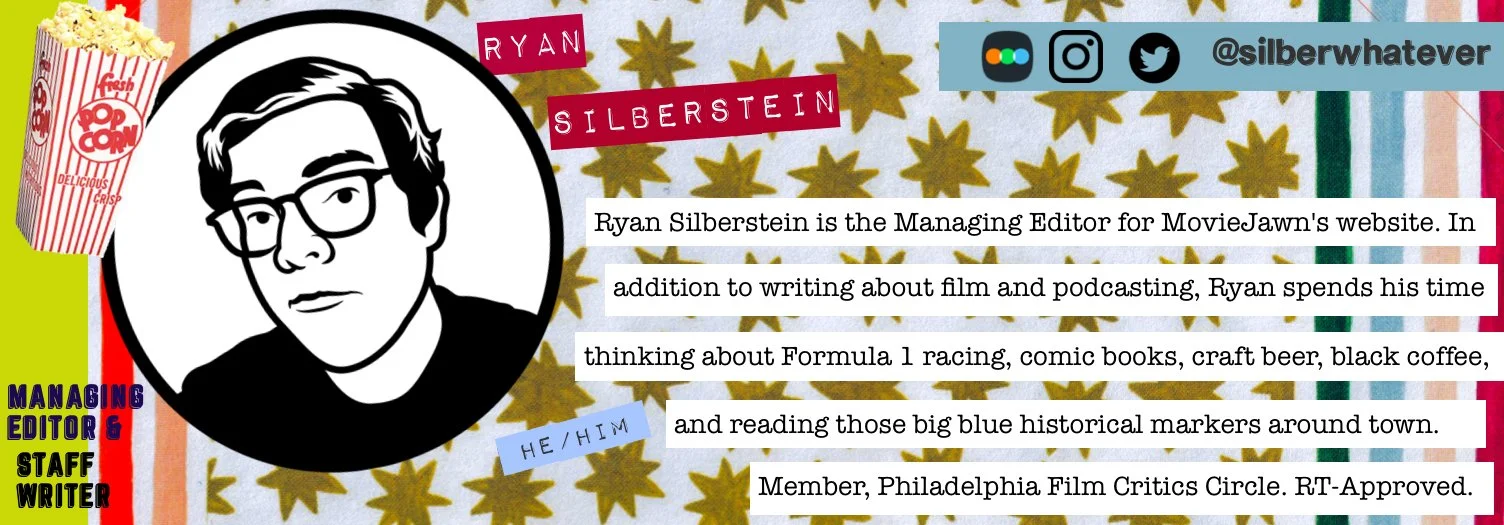PFF2022: TURN EVERY PAGE is a loving tribute to serious work
Directed by Lizzie Gottlieb
Featuring Robert Caro and Robert Gottlieb
Runtime: 1 hour, 52 minutes
Showing October 29 at the Philadelphia Film Festival
by Ryan Silberstein, Managing Editor, Red Herring
Quality is subjective, but Robert Caro’s The Power Broker, a biography depicting the rise and fall of Robert Moses does present a challenge to that maxim, or maybe just an exception. And not because it won a Pulitzer prize decades ago, but because of its staying power. The opening of Turn Every Page: The Adventures of Robert Caro and Robert Gottlieb demonstrates this using clips from the era of COVID-19 when the cable news commentariat was appearing from home. So many of them had The Power Broker on the shelves behind them, easy to pick out from its girth and bright read title treatment. It’s an essential book for political wonks of all stripes, but just as important for every citizen wanting to understand how power works. And as testified by Ethan Hawke, Conan O’Brien and others within this documentary, Caro’s prose takes a dry subject and transforms it into a riveting blockbuster of a book.
Turn Every Page, directed by Lizzie Gottlieb, daughter of editor Robert Gottlieb, attempts to delve into the collaboration between these two legends and examine this 50 year working relationship. While Gottlieb’s name is not as immediately recognizable, his fingerprints are all over the literature of the last few decades, and most readers have encountered him whether they know it or not. His resume includes editing Toni Morrison, John Cheever, Michael Chricton, John le Carré, Ray Bradbury, Bill Clinton, and Bob Dylan. Speaking as an editor, Gottlieb likens his work to a service job, albeit born out of a love of reading. But that service depends on the particular relationship between editor and writer. While some writers only need copyediting, for others it takes a form not unlike psychoanalysis. Regardless, Gottlieb calls the work “sacred” and the job of the editor is to “help him [Caro, in this example] do what he wants to do.”
Lizzie Gottlieb seems to have chosen the Caro-Gottlieb relationship because although the two have been collaborating since around when she was born, how the two men worked together remained a mystery. For a writer who researches as deeply and whose prose is so widely praised, some aspects of editing Caro can get a bit contentious. Semicolons, in particular, remain a sticking point between the two, and have led to arguments where one or the other has to leave the room. But the core of that is a deep caring about the final book. “Editors have to be cruel to be kind,” Gottlieb says. This is especially true in the case of The Power Broker, since almost a third of the book had to be cut in order to fit into a single volume. Even Robert Moses was subject to the physical demands of book publishing.
While Turn Every Page could be dismissed as soft, as it certainly does not come with the hard-hitting revelations and exposure offered by Caro’s work on Moses or Lyndon B. Johnson, there is value in celebrating this relationship. Caro offers us a better understanding of America through the documentation of two of the most towering and influential figures of the 20th century. No one else shaped New York like Robert Moses, and the same could be said for LBJ and the country as a whole. Caro’s two central fixations are how someone gains and uses power, and whether the ends justify the means. Both of these men provide ample challenges to the latter, and part of why Caro’s work has stood for so long is because he has always taken into account the impact of the use of this power on the public in addition to the means needed to execute their visions. There is something to be said for an engaging and pleasant documentary that can act as a gateway to these concerns, and having Caro and Gottlieb discuss their process while they are here to do so is likely worth whatever might have been gained from a less biased filmmaker (if they could even gain access to these two in the first place).
The title Turn Every Page comes from Caro’s approach to research. It means “never assume anything,” and is one of the reasons his research is so extensive and his writing process takes years. For fans of his work, this provides a fun way to get to know the man behind the words, a victory lap before he’s ready to share the final LBJ volume with us.


